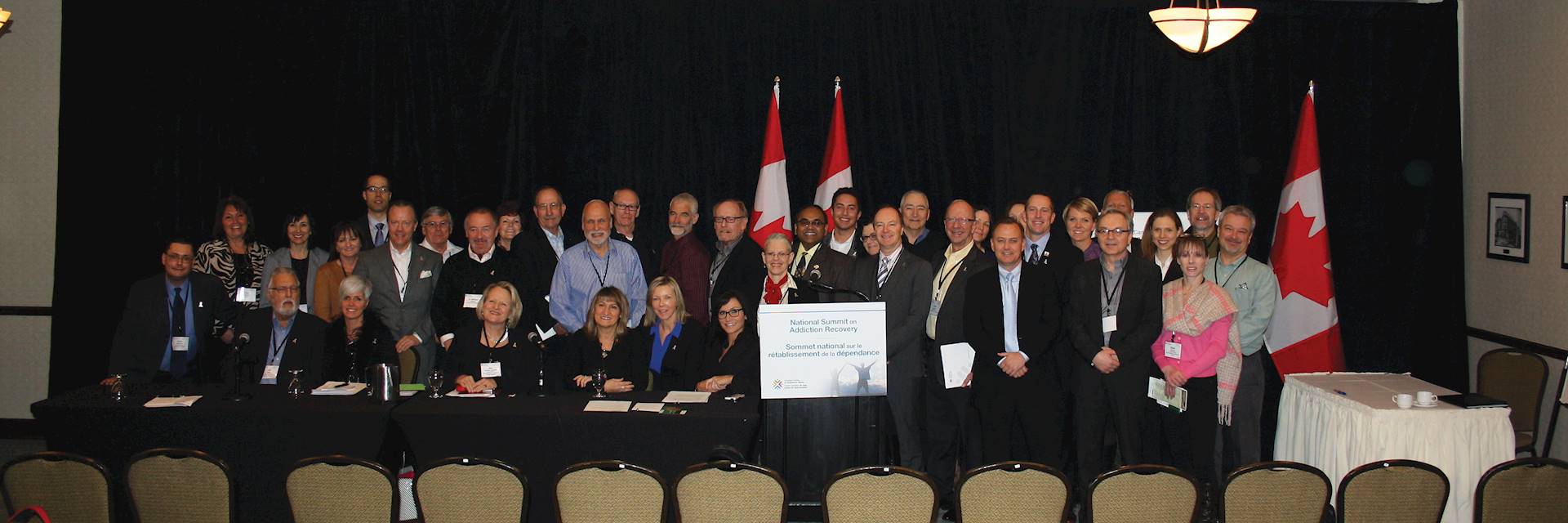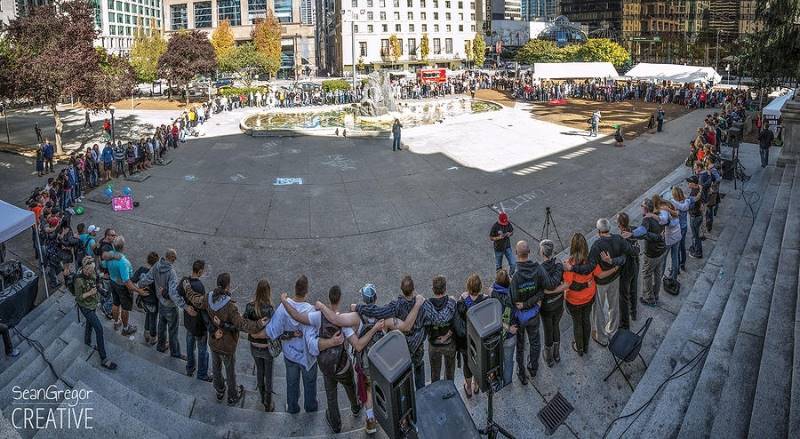I have been delighted in recent years to witness the blossoming of a recovery advocacy movement in Canada. Following a series of early email exchanges with Canadian advocacy leaders, I have closely followed the first public recovery celebration event in Canada (September 30, 2012; see Recovery Day Canada), the founding of Faces and Voices of Recovery Canada (April, 2013), the first Canadian "Life in Recovery" survey (2014), and the growing collaboration between recovery advocates, addiction treatment providers, and the Canadian Centre on Substance Abuse. These activities set the stage for the first Canadian National Summit on Addiction Recovery held in Ottawa January 27-28, 2015.

This first Canadian National Summit on Addiction Recovery was attended by individuals representing the recovery community, policy leadership, addiction research, addiction treatment, and primary prevention. The collective deliberations of these constituents led to the release of the consensus statement, A National Commitment to Recovery from the Disease of Addiction in Canada. The Commitment statement outlined a vision for Canada in which: 1) recovery is real, available, attainable, and sustainable, 2) recovery is an ongoing journey free of stigma and discrimination, 3) individuals, families, workplaces, and communities are celebrated for their perseverance and commitment to recovery, and 4) recovery-focused services and supports are based on collaboration and partnership.
The Commitment statement also outlined the following principles to guide the development of recovery-oriented systems of care in Canada.
- There are many pathways in Recovery. Recovery involves a process of personal growth along a continuum leading to abstinence. It includes a range of services and supports that spans peer support, mutual aid, early identification and intervention, outreach and engagement, specialized treatment, relapse prevention, and continuing care.
- Recovery requires collaboration. Recovery-focused systems require collaboration across sectors, including peer support and mutual aid, health, social, educational, criminal justice, employment, economic, spiritual, and housing sectors.
- Recovery is a personal journey toward wellbeing. Recovery is an ongoing and dynamic process that is unique to the individual's strengths, culture, gender, personal qualities, and experiences.
- Recovery extends beyond the individual. Recovery involves family, peers, workplaces, and the community.
- Recovery is multidimensional. Recovery enhances physical, social, mental, emotional, and spiritual health.
- Recovery involves everyone. Everyone has a role to play in overcoming the stigma of addiction and in supporting and celebrating recovery.
In October 2001, recovery advocates from across the United States similarly gathered in St. Paul, Minnesota in hopes of launching a national recovery advocacy movement in the United States. In the years since, that movement has reaped fruits far beyond anything those of us in St. Paul could have predicted or imagined. We wish our Canadian friends well as they pursue their newly forged vison of a country that celebrates and supports addiction recovery. As this movement seeks its destiny, we encourage you to record its history, its seminal ideas, and its core strategies. There is much that recovery advocates in other countries can learn from you.
 ?
?